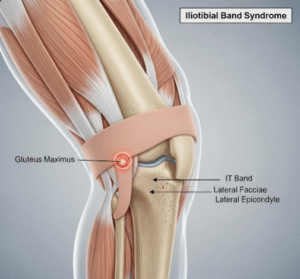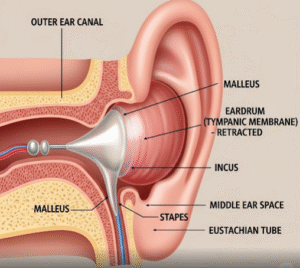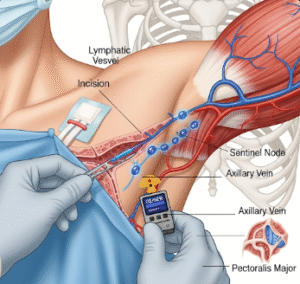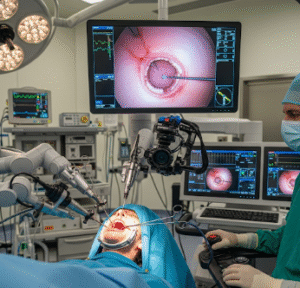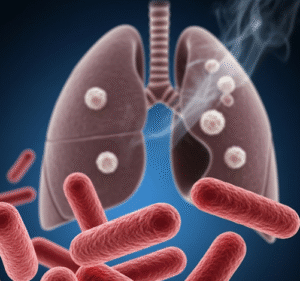Overview
Tourette Syndrome (TS) is a neurological disorder characterized by repetitive, involuntary movements and vocalizations known as tics. It usually begins in childhood, often between ages 5 and 10, and can persist into adulthood. The severity of tics varies, with some individuals experiencing mild, manageable symptoms and others facing significant social and functional challenges. South Korea provides specialized neurological and psychiatric care for Tourette Syndrome, including advanced diagnostic assessments, behavioral therapies, pharmacological management, and comprehensive support programs to improve quality of life and social integration for patients.
What is Tourette Syndrome?
Tourette Syndrome is a neurodevelopmental condition defined by the presence of both motor tics and vocal tics for more than one year. Motor tics are sudden, rapid movements, such as blinking, shrugging, or facial grimacing. Vocal tics include sounds like throat clearing, grunting, or repeating words. Tics often fluctuate in frequency and intensity, sometimes improving or worsening due to stress, fatigue, or excitement. Tourette Syndrome may co-occur with other neuropsychiatric conditions, including attention deficit hyperactivity disorder (ADHD), obsessive-compulsive disorder (OCD), and anxiety disorders. Early intervention and structured treatment in Korea help individuals manage symptoms effectively and lead productive lives.
Symptoms
The primary symptoms of Tourette Syndrome involve motor and vocal tics, which vary widely among patients:
- Motor tics: Rapid, repetitive movements such as eye blinking, head jerking, shoulder shrugging, facial grimacing, or hand movements
- Vocal tics: Throat clearing, grunting, sniffing, humming, or uttering words and phrases
- Complex tics: Coordinated sequences of movements or vocalizations that may appear purposeful
- Fluctuating symptoms: Tics may worsen with stress, excitement, or fatigue and improve during focused activities
- Comorbid behavioral issues: ADHD, impulsivity, hyperactivity, or compulsive behaviors
- Social challenges: Difficulty in school, work, or social settings due to tic visibility or stigma
- Self-injurious tics: Rare cases involve repetitive behaviors that may cause physical harm
Symptoms usually start mild, escalate over several years, and can persist into adulthood. In some individuals, tics diminish significantly or resolve by adulthood.
Causes
The exact cause of Tourette Syndrome is not fully understood, but it is believed to result from a combination of genetic, neurobiological, and environmental factors:
- Genetic factors: Family history of TS or tic disorders increases susceptibility
- Neurochemical abnormalities: Imbalances in neurotransmitters such as dopamine, serotonin, and gamma-aminobutyric acid (GABA)
- Brain structural differences: Alterations in basal ganglia, frontal cortex, and thalamic pathways
- Environmental influences: Prenatal and perinatal complications, low birth weight, or exposure to toxins
- Stress and fatigue: Can exacerbate tic frequency and severity
Ongoing research in South Korea and worldwide focuses on identifying precise genetic markers and neurobiological pathways to develop targeted therapies.
Risk Factors
Individuals are more likely to develop Tourette Syndrome if certain risk factors are present:
- Family history of TS or related tic disorders
- Male gender, as TS is more common in boys than girls
- Comorbid conditions such as ADHD or OCD
- Prenatal exposure to maternal smoking, stress, or certain medications
- Early developmental complications or low birth weight
- Environmental triggers that exacerbate tics, including stress or fatigue
Identifying these risk factors helps clinicians in Korea with early detection and management strategies.
Complications
While Tourette Syndrome itself is not life-threatening, it can lead to multiple challenges and complications:
- Social and emotional difficulties: Stigma, bullying, and social isolation
- Academic or occupational challenges: Difficulty concentrating or performing in school or work settings
- Coexisting mental health conditions: Anxiety, depression, OCD, or ADHD
- Sleep disturbances: Difficulty falling or staying asleep due to nocturnal tics
- Physical injury: Rare cases of self-injurious tics
- Reduced quality of life: Emotional distress, lowered self-esteem, and social withdrawal
Early diagnosis and comprehensive care in Korea help minimize these complications and support positive psychosocial outcomes.
Prevention
Although Tourette Syndrome cannot be entirely prevented due to its genetic and neurobiological origins, certain measures can help reduce tic severity and manage symptoms:
- Early intervention: Prompt assessment of tics and related behaviors in children
- Stress management: Relaxation techniques, mindfulness, and adequate sleep
- Supportive environment: Understanding family, school, and community support
- Healthy lifestyle: Balanced diet, regular physical activity, and structured routines
- Avoidance of environmental triggers: Minimizing fatigue, stress, and overstimulation
Prevention strategies focus on early recognition, symptom management, and creating an environment that reduces stressors and supports development.
Treatment Options in Korea
South Korea offers multidisciplinary care for Tourette Syndrome, integrating neurology, psychiatry, psychology, and occupational therapy:
Diagnosis:
- Comprehensive clinical evaluation by neurologists and psychiatrists
- Detailed medical and family history assessment
- Observation and documentation of motor and vocal tics
- Screening for comorbid conditions like ADHD and OCD
- Use of standardized rating scales for severity assessment
Behavioral and Non-Pharmacological Treatments:
- Comprehensive Behavioral Intervention for Tics (CBIT): Habit-reversal therapy and coping strategies
- Cognitive Behavioral Therapy (CBT): Particularly for coexisting anxiety or OCD
- Relaxation techniques: Mindfulness, breathing exercises, and stress reduction strategies
- Occupational and educational support: Accommodations in school or workplace settings
Pharmacological Treatments:
- Dopamine-blocking medications: Such as antipsychotics for severe tics
- Alpha-adrenergic agonists: For mild to moderate tics, often with ADHD comorbidity
- Selective serotonin reuptake inhibitors (SSRIs): For anxiety or OCD symptoms
- Adjunct therapies: Individualized medication plans based on severity and comorbidities
Rehabilitation and Support:
- Patient and family education on TS and tic management
- Peer support groups and community resources
- Regular follow-up to adjust treatment and monitor progress
- Integration of therapy into daily routines to reduce tic interference
Korean medical centers provide advanced facilities, expert neurologists, and holistic approaches to optimize quality of life, manage tics, and support social and emotional well-being for patients with Tourette Syndrome.



